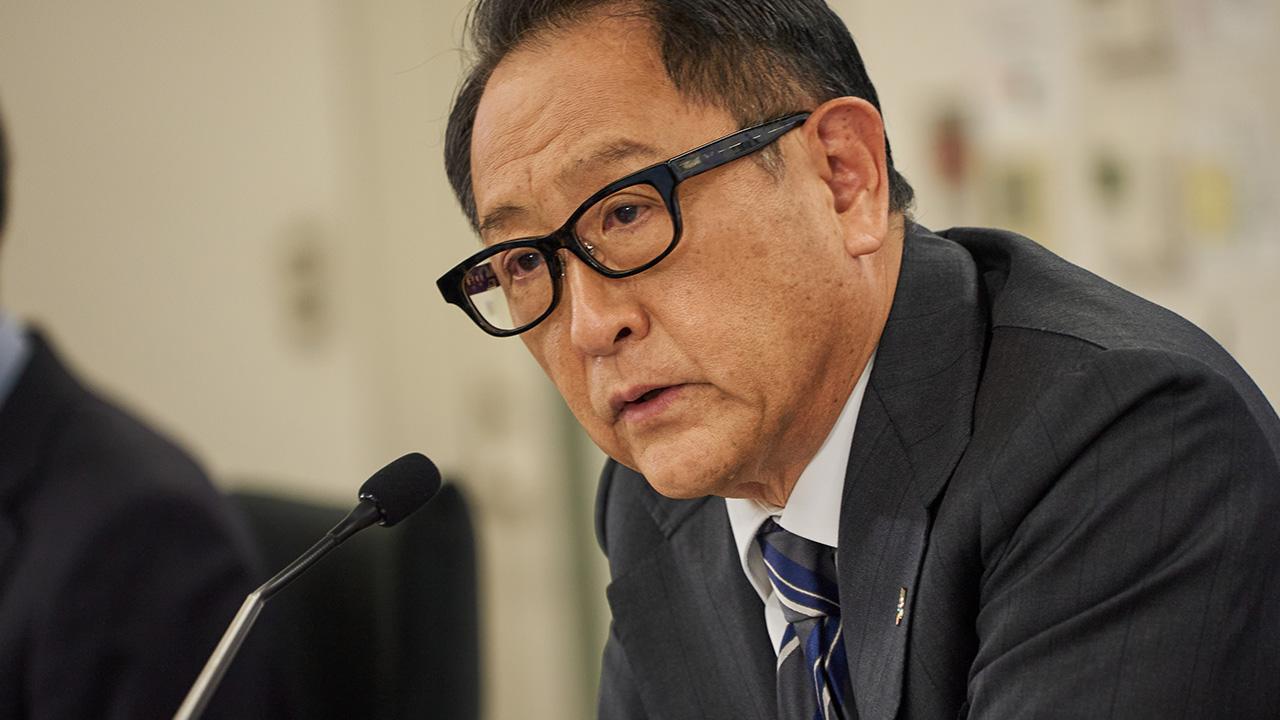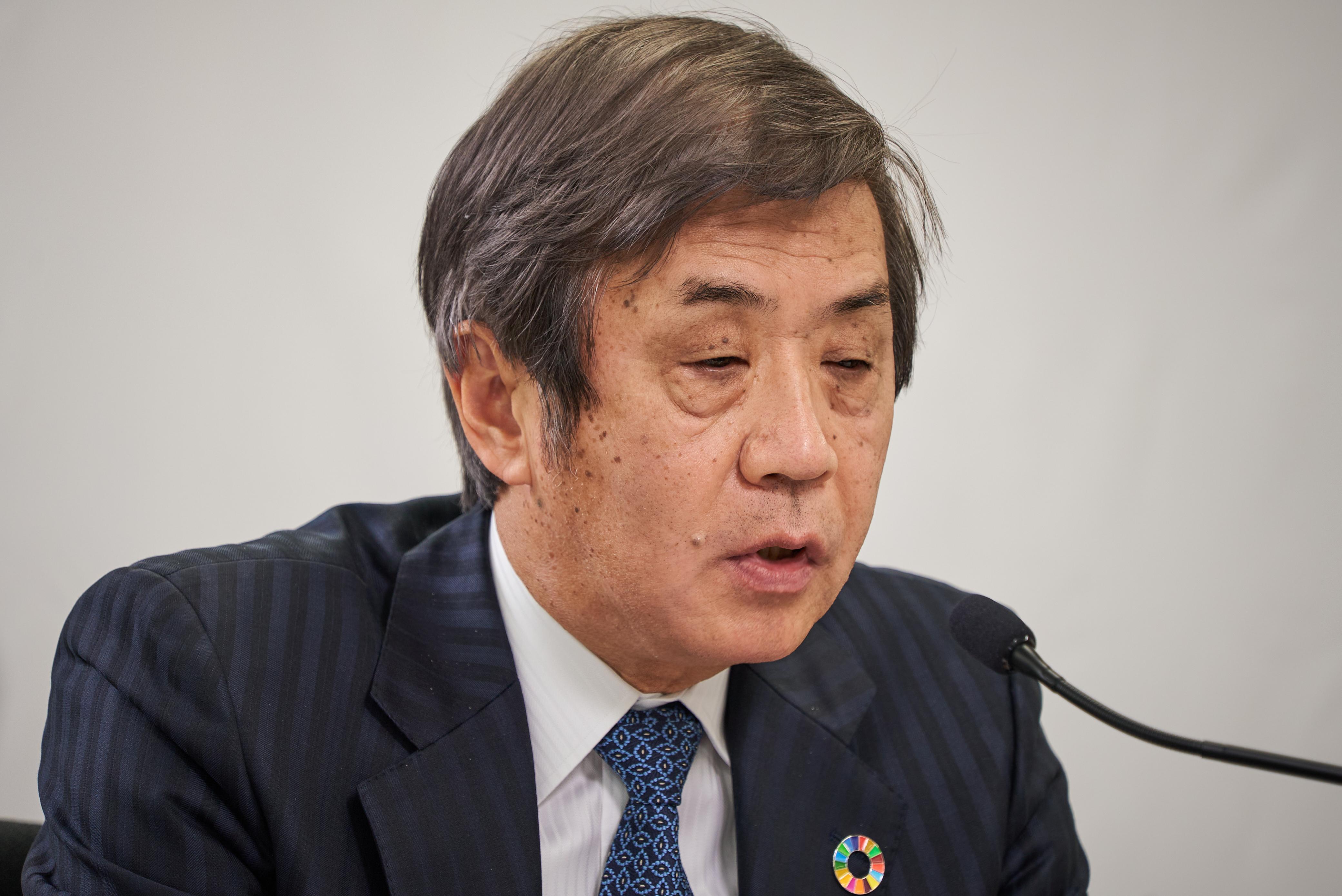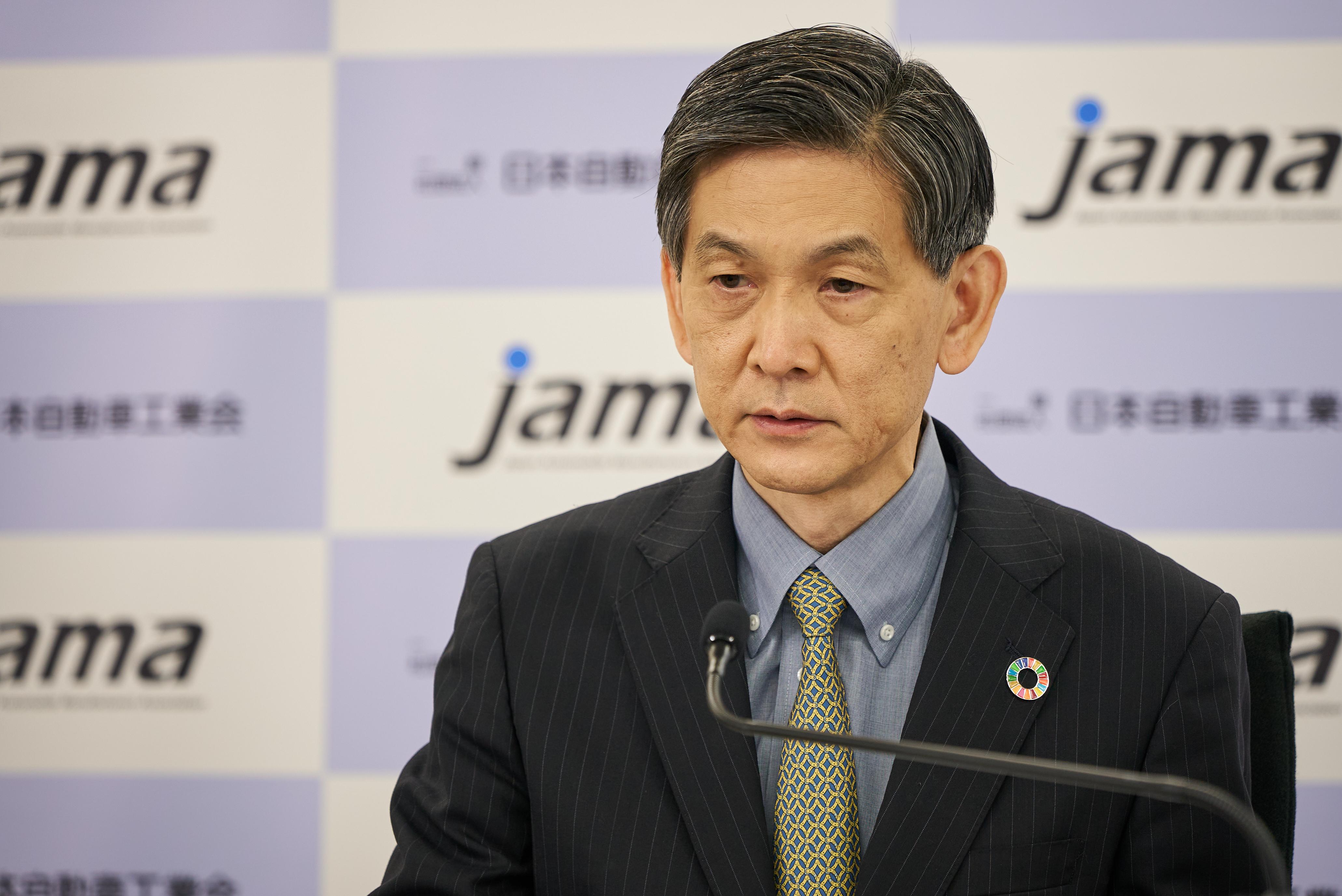
Public and private sectors unite to pursue carbon neutrality using Japan's diverse options. JAMA reaffirmed the auto industry's mission for Japan's future at this recent press conference.
Japan’s multi-path solutions address the needs of the diversified world
The next question was about how JAMA contributes to Japan’s own path to carbon neutrality.
Chairman Toyoda
Japan’s automotive industry has prepared a full range of options toward electrification. While BEVs are an important solution, we don’t see them as the only option. I still maintain that a diversified world needs diverse options.
We should be working hard to reduce CO2 emissions as much as possible and as soon as possible through a mix of various technologies, rather than focusing so much on how regulations should be. I think we have reached a point where we can work with other industries and discuss how to produce and transport energy, and even how to build cities.
Vice Chairman Katayama

Carbon neutrality is sure to be a prominent topic at next year’s G7 summit. I feel that an important aspect is the availability of diverse options, a multiple pathway approach. We have diverse solutions that can lead to carbon neutrality by addressing the specific needs of not only Japan, but also other regions around the world.
We are by no means dismissing BEVs. By also offering other alternatives, however, I feel that Japan’s automotive industry can play a very significant role in the world.
Reporters also gave a question on the topic of taxation, asking for JAMA’s views on a BEV mileage tax reportedly considered for the fiscal year 2023.
Chairman Toyoda
We have continually called for simplifying and alleviating Japan’s automobile taxes, which are complex and also the world’s highest. However, we are not simply demanding reductions.
I have been vocal in stressing the need to set a direction for Japan as a nation when considering how to utilize those taxes.
In this sense, the Committee on Mobility and the meetings with the Prime Minister’s office have provided excellent platforms for discussion. I see these as the first steps toward a drastic revision of Japan’s overall taxation system, with a view to boosting the country’s competitiveness.
I hope you will appreciate that, rather than chasing short-term results, the automotive industry also wants to help Japan regain its competitive presence over a span of some 20 to 30 years.
Vice Chairman Nagatsuka added to these comments.
Vice Chairman Nagatsuka

There have been reports of a proposed mileage tax, but we see this as a deeply flawed approach.
Firstly, while we believe this is a time to promote the adoption of electrified vehicles, from a policy standpoint introducing a tax based on mileage would put the brakes on the uptake of such vehicles.
A second aspect is the increased tax burden on those who travel longer distances, including people living in rural areas or working in logistics. We believe such taxation would receive little support, especially in rural areas where many people rely on cars for commuting to work or school, and would therefore be taxed on the distances they travel every day.
We are firmly opposed to the hasty introduction of a mileage tax without consulting the public or thoroughly confronting the issues involved. I believe we need a public debate to ensure that the end users are on board.
Throughout the press conference, the focus remained on the automotive industry’s role in shaping Japan’s future. The discussions will continue between the public and private sectors as they work together for the future of Japan and the world.

